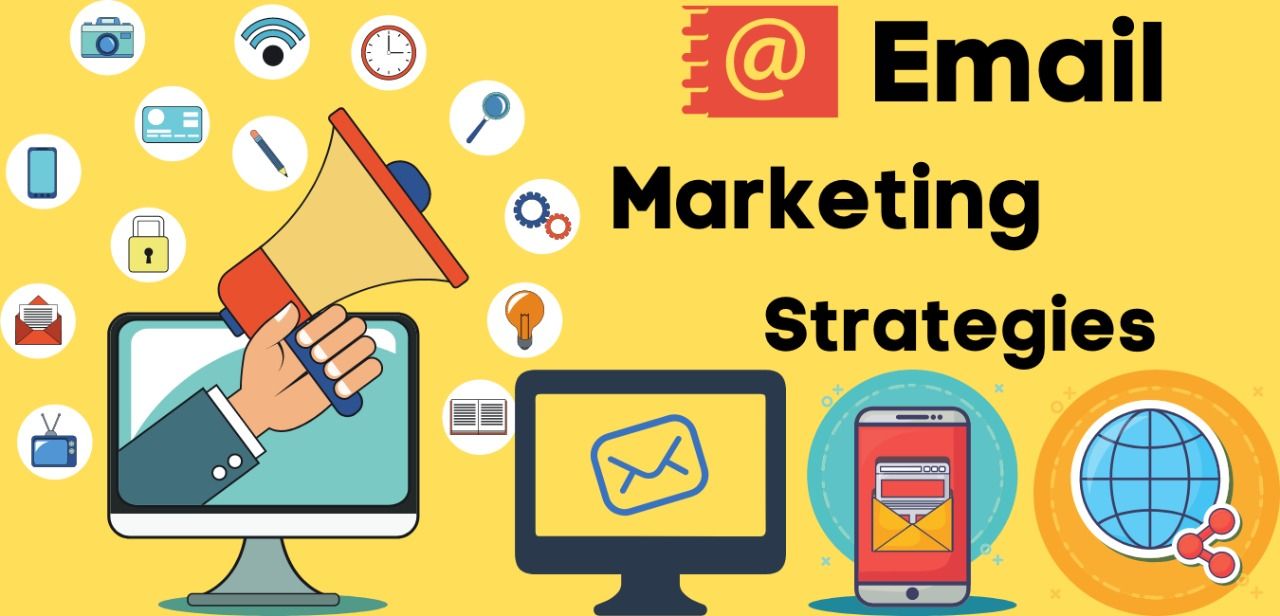If you ask someone what marketing is? — You will get various kinds of responses. Some would say it’s selling. Others will refer to it as advertising or promoting or everything else (but it’s hard to get a specific and relevant answer to that!)

So, what exactly does this term ‘Marketing’ signify and what are other aspects associated with it.
You will learn everything about it in this article that will provide you with a thorough and clear picture of marketing and related elements. We’ll cover:
- Understanding Marketing
- Definition of Marketing Research
- Importance of Marketing
- Process of Marketing
- Types of Marketing
- 4 P’s of Marketing
- Marketing Goal
- Different Aspects of Marketing Strategies
- Advertising and Marketing
- Branding and Marketing
- Sales and Marketing
- Need of Marketing for your Business
Understanding Marketing
Marketing is the act or business of promoting and selling products or services, including advertising and market research. Moreover, marketing is now an essential component of any company's or organization's growth strategy. In today's competitive landscape, leveraging the right tools is crucial. Companies can enhance their content creation and distribution by utilizing top content marketing tools to boost your strategy, helping them reach a broader audience and achieve better engagement. These tools streamline everything from planning and publishing to analyzing the performance of content.
In addition, many businesses utilize marketing techniques without completely comprehending them in order to advertise themselves and improve product or service sales. Nowadays, marketing is one of the most crucial aspects of a company's operations.
However, when asked, the majority of individuals have no understanding of what marketing is and misinterpret it for selling or advertising. Although these responses aren't necessarily inaccurate, they are part of the marketing process.
Marketing is a set of concepts that includes promotion, product distribution, designing and creating materials such as landing pages and social media content, doing market research, improving customer experience, segmenting markets, and much more.
Any technique that assists a company, brand, or individual in accomplishing their goals is referred to as marketing.
Definition of Marketing Research
Marketing is a practice that encompasses an organization’s activities to attract, engage and maintain relationships with customers. Further, it is accomplished through the utilization of data, which is used to identify and establish marketing opportunities.
This information is also used to create, develop, and analyze marketing strategies, as well as to monitor marketing performance and improve understanding of the marketing process.
Simply put, marketing research identifies the data needed to address these issues, prepares a data collection strategy, supervises and implements it, analyses the results, and conveys the findings and their consequences.
Importance of Marketing
Check the following points that will enlighten you on the importance of marketing. Let’s check:
Marketing aids in the increase of sales
Marketing is one technique to convey information to clients. Customers will have a better understanding of your goods via this technique. Also, they'll be aware of the benefits of buying your products.
Furthermore, marketing is the process of informing a big number of people about a specific product. Your sales will rise if your customers are aware or well-informed about your services or products.
Marketing generates revenues and profits
Many businesses benefit greatly from marketing when it comes to generating cash. It occurs when diverse marketing methods are used by different business sectors to boost profits. Further, reducing product costs is one strategy to boost profit. As a result, a large number of buyers will purchase the product.
Reduced product costs will attract more potential buyers, resulting in increased sales. It's preferable to make smaller profits but have more constant sales.
In addition, running media commercials and promos is another strategy to boost revenue. It's the simplest way to get the word out about your items.
Improve your company's objectives.
A company's success is determined by its goals and objectives. Marketing may assist a company in determining its objectives. Moreover, the popularity of their brand will increase as a result of using specific marketing methods.
This will encourage the company to preserve its positive reputation. Also, it will help to establish clear goals and objectives so that their personnel are aware of their objectives. These objectives will also be met by their intended audience.
Build Your Brand's Reputation
Another advantage of using marketing methods is that you may establish a reputation for your company. It is, however, vital to guarantee that you are supplying high-quality, useful products to your target market. You will not only establish an amazing reputation for your goods but also for your brand.
Makes it easier to make decisions
When a company engages a market specialist, they will do all possible to increase product sales by implementing effective marketing strategies. Knowing your audience is the first step in carrying out these activities.
Moreover, when a corporation has a complete understanding of its target market — it can better decide what lines and details to use to persuade people to buy its products.
Process of Marketing
Here we have provided you with a breakdown of the marketing process. Check out:
Types of Marketing
Following we have listed types of marketing with their explanation. Have a look:
Content Marketing:
Content marketing is a strategy for attracting and acquiring a defined audience. Further, it is implemented through the creation and distribution of valuable, relevant, and consistent content with the goal of driving profitable customer action.
The Association of National Advertisers (ANA) defines content marketing as "the use of a variety of strategies to express a brand's narrative." To increase consumer stickiness and emotional attachment, more marketers are shifting their advertising to content marketing/storytelling.
Search Engine Optimization
The practice of developing a marketing/technical plan to boost exposure in one or more search engines is known as search engine optimization (SEO).
In most cases, there are two components to this:
On a technical level, SEO comprises ensuring that a website is properly indexed by the major search engines by employing the appropriate keywords, content, code, and links.
On the marketing side, SEO is the practice of focusing on specific keywords that the site should help them to get to the top of search results. In addition, this can be accomplished by changing a website to improve its ranking in the algorithms used by search engines, or by purchasing keyword placement. SEO plans frequently incorporate a number of different features and tactics.
Inbound Marketing
Inbound marketing is a type of marketing that emphasizes attracting customers. Further, it signifies when customers contact a marketer as a result of numerous strategies employed to gain their interest. These tactics include email marketing, content marketing, event marketing, and web design.
Furthermore, one of the objectives of inbound marketing, which includes content marketing, is to position the company as a reliable source of relevant information and problem-solving solutions, resulting in increased customer trust and loyalty.
Outbound Marketing
When the term inbound marketing gained traction, a new phrase for traditional marketing emerged: outbound marketing.
Outbound marketing strategies such as television, radio, and digital display advertising are used by the marketer to make contact with the customer. It's commonly utilized to raise consumer knowledge and preference for a certain brand.
Keyword Marketing
The practice of delivering a marketing message to customers based on the keywords and phrases they choose to search is known as keyword marketing.
This strategy has the advantage of allowing marketers to reach out to the appropriate people at the appropriate time with the appropriate message. When particular keywords are typed, keyword marketing results in the placement of an ad for a number of marketers.
It's worth noting that this term in SEO refers to achieving first-page ranks in search results.
Influencer Marketing
The Association of National Advertisers (ANA) defines influencer marketing as "the utilization of individuals who have influence over potential customers and the structuring of marketing operations around them to transmit a brand message to a larger market."
Influencer marketing entices or compensates influencers. It includes online content creators, celebrities, employees, advocates, and more. They help to spread the word on their level to a large audience.
Green Marketing
The development and promotion of items that are deemed to be ecologically friendly is termed green marketing. Moreover, in simple words, it is designed to minimize negative effects on the physical environment or to improve its quality.
This term can also apply to efforts to create, promote, package, and reclaim things in an environmentally friendly or responsive manner.
Guerrilla Marketing
Guerrilla marketing is a term that refers to a unique and creative marketing method that attempts to achieve maximum results with the least amount of resources.
Viral Marketing
Viral marketing is a sort of marketing that encourages and allows people to share marketing messages with others.
Because it resembles the transmission of a virus or illness from one person to another. And, the number of persons exposed to a message has been termed as — viral.
Relationship Marketing
The Association of National Advertisers (ANA) defines as "strategies and techniques for fragmenting customers in order to generate commitment."
Relationship marketing employs behavioral advertising, database marketing, and analytics to precisely target clients and build loyalty programs.
4 P’s of Marketing
In 1960, E. Jerome McCarthy introduced the 4P’s of Marketing formula. These 4 P's are referred to as— product, price, place, and promotion. He provided a clear interpretation of the marketing strategy stages of the business. Let's study them:
Product:
Suppose you want to build your business. So, you researched and selected a product to sell. Will it work? Of course not!
You need a marketing strategy to make it work. For that, you need a marketing team that helps you to build a strong foundation to sell that product such as— marketing research, answering queries, sharing relevant information, targeting the right audience, choosing the right platforms, and much more.
Moreover, you should not randomly choose any products or blindly follow any trend. Instead, you should research all aspects that could ultimately add value to your customers and satisfy their requirements.
Here is the list of a few elements that you should consider for products or services. Let’s check:
- What do customers expect from the product or service?
- How and what customer needs does it fulfill?
- What features does it offer that will allow it to meet these requirements?
- Do any further features are required?
- Are you including expensive features that your customers would never use?
- What will your customer do with it and where will he or she use it?
- What size(s), color(s), and other characteristics should it have?
- Is there any kind of branding on it?
- What distinguishes it from the products of your competitors?
- The maximum cost of provision that can still be sold profitably?
Price:
Setting up the cost or price for your products is an important element of marketing strategy. Your marketing team will look at competitor product prices or conduct focus groups and surveys to determine how much your target consumer is willing to spend.
However, you'll lose a devoted customer base if you price it too much. You may lose more money than you make if you price it too low. Fortunately, utilizing industry data and customer analysis, marketers may select an appropriate price range.
Following is the list of questions that you should consider. Let’s check:
- What is the product or service's value to the buyer?
- Is there a set price point for this type of goods or service?
- Is the customer a price shopper? Will a tiny price difference help you gain market share? Or will a little increase be undetectable, allowing you to enhance your profit margin?
- What kinds of discounts should you give to trade customers and other niche markets?
- What will your price be in comparison to your competitors'?
Place:
Your marketing staff must provide recommendations for how and where your product should be sold. It would be based on their knowledge and analysis of your business's clients.
Alternatively, they might be able to tell you which locations, both locally and globally, are the best for marketing your products. However, an internet store or a network of physical businesses spread over different towns or countries could be considered a strategic merchandising site.
Nevertheless, your distribution strategy's purpose is to make your products/services available to potential customers while also providing a pleasurable buying experience.
Check the list of questions that you should consider:
- Where do potential customers go to find your goods or service?
- What type of establishment would it be—a store, a supermarket, an internet store, a catalog, or something else entirely?
- What are the most effective methods for locating the appropriate distribution channels?
- Is it necessary to hire a sales team? Make submissions over the internet? Do you want to provide catalog companies samples?
- What do your competitors do, and what can you learn from them and make changes?
Promotion:
All of your marketing and communication efforts targeted at presenting the benefits of your product or service to the market are referred to as Promotion. It refers to any online or print campaign, event, or discount that your marketing team creates in order to enhance awareness and interest in your product and, as a result, improve sales and increase your revenue.
Check the following list of questions associated with promotion:
- When and where can you reach out to your target market with your marketing messages?
- What are the best ways to contact your target audience—television or radio, billboards, internet advertising, public relations, the Internet, marketing mailshots, and more?
- When is the greatest moment to market a product or service? Is the market subject to seasonality? Are there any broader environmental issues that influence or dictate when your market opens or when you promote it?
- How do your competitors promote themselves? What impact does this have on the promotional activity you choose?
Marketing Goal
The purpose of the marketing goal is quite straightforward and simple. When explained in a simple manner— Marketing's purpose is to generate revenue for a company, organization, or brand. Furthermore, marketing professionals and teams achieve this by executing strategic digital activities that generate traffic, qualified leads, and sales in direct partnership with their sales team.
Different Aspects of Marketing Strategies
Marketing is more of a collection of different techniques and tactics than a single strategy. We've developed a list of essential marketing techniques to be mindful of. Some of those aspects of marketing strategies are listed below:
- Marketing Plan: Explore all aspects of a marketing plan. Learn what a marketing plan is, why you need one, and how to make a successful one. A firm or brand will not be able to achieve its objectives without a marketing strategy.
- Digital marketing is a marketing discipline that is entirely focused on developing a plan for the digital realm.
- Mobile marketing refers to all marketing strategies and actions that are only focused on mobile platforms and applications. It includes smartphones and tablets.
- Viral Marketing: Every organization, company or brand loves to go viral. It is the best form of marketing technique to reach millions of customers. Further, it is a sort of marketing that spreads from one person to the next in a short period of time.
- Direct marketing is a type of campaign that uses two-way, direct communication to elicit a reaction from a target audience.
- Email marketing is one of the most profitable and productive approaches in terms of return on investment. Naturally, this entails sending emails to your target audience, but in order to be effective, your segments must be precisely defined.
- Performance marketing is a strategy that uses a variety of marketing approaches and techniques while ensuring marketers that they would only be paid for the outcomes they achieve.
- Inbound marketing is a method of attracting qualified online traffic and closing transactions through the creation of relevant content.
Advertising and Marketing
Advertising is a component of marketing, which is the major distinction between the two. Furthermore, an effective marketing plan typically allocates resources to many levels of advertising.
Marketing includes market research, sales strategy, product development, product distribution, public relations, and customer support. In addition, marketing is essential at every stage of a company's sales cycle.
And, it may identify its target audience, engage with them, amplify its voice, and develop brand long-term relationships through a range of platforms, social media channels, and internal teams.
Furthermore, marketing strategies have an impact on all forms of media, including paid, earned, and owned. It specifies the steps that would satisfy clients' wants and wishes. And determining the most effective strategy to meet them.
On the other hand, marketing encompasses many different aspects, and advertising is just one of them. It's a paid-for strategic endeavor to create awareness of a product or service in order to achieve the bigger objectives outlined that are mentioned above. To put it another way, it's not the only technique for marketers to sell a product.
Furthermore, advertising is typically restricted to commercial media (such as print ads, social media ads, direct mail or email, search engine ads, broadcast, or billboards). Simply put, it's a commercial strategy that involves the paid placement of branding or messaging. It is also possible to say that it has a label attached to it.
Branding and Marketing
Marketing can have a beneficial or bad impact on a brand. Also, by conducting amazing, helpful, and empathic discussions with their customers, marketing may assist build a great brand experience.
Advertisements depicting guys with gorgeous girls on one arm and their product on the other can harm firms when they interrupt our TV shows and web experiences.
Marketing aids in the development of brands by providing memorable experiences.
However, In a perfect scenario, marketing would assist in the creation of strong brands. Without a doubt, popular brands know how to market oneself. Moreover, they act as educators and guide customers to know about their products and services in an amazing way. Further, they treat their workers with dignity. Also, they act as concerned global citizens who are worried about future generations.
In addition, the experiences that great brands provide reveal who they are. Marketing tries to figure out what makes a wonderful experience. Advertising interrupts our experiences, and we don't always dislike it.
Sales and Marketing
Although sales and marketing are closely related, they address very different aspects of your organization.
The sales team has no power over the product or who buys it; all they do is acquire leads and persuade customers to buy. Employees in sales must develop intimate relationships with their customers, and they rely on marketing intelligence to do so.
Furthermore, your marketing team generates these leads by informing potential customers about your brand and product. They also use user input and information to determine which products to develop in the future and how to improve existing products to better satisfy customer wants.
Moreover, you won't be able to sell efficiently unless the people you're selling to are already aware or know your brand, services, or product. To help you with that, marketing can assist you.
Marketing and sales teams must collaborate closely and have a cohesive approach to achieve a successful plan. Nevertheless, this guarantees that the sales staff only receives high-quality leads.
Eventually, marketing automation software can aid in the alignment of your marketing and sales teams, allowing them to work more efficiently toward a single goal.
Need of Marketing for your Business
Following we have listed why your business needs marketing. Let’s cover all elements:
Enhances Brand Recognition
This is necessary since it introduces customers to your brand and the items or services you offer. Consumers will begin to trust your brand, become loyal customers, and spread the word about you to their family members and friends as a result of this.
Attract clients and increase website traffic
Increasing the number of visitors to your site is one way to get more qualified
and, as a result, increase revenue. Furthermore, a well-executed and strategic marketing effort will enhance this process.
Increasing Profits
It is self-evident that every company wishes to increase sales of its products or services. And, in order to do so, marketing can assist them. It can also be accomplished through a variety of tactics, like enhancing your website and SEO, creating email campaigns, doing A/B tests to discover the best approach for you, and more.
Building Brand Credibility
A high level of trust in your brand fuels customer loyalty and repeat purchases. Moreover, it helps to boost profits and revenue along with positive reviews from customers. Further, these reviews come in both methods— online and offline (word of mouth). The latter still works as the best effective form of marketing.
Metrics Monitoring
When it comes to developing a marketing plan, metrics are really useful. Furthermore, it helps to analyze the strategy and track its progress. In addition, it also guides to reveal what could be modified or changed that helps to enhance campaigns improvement over time.
How Deskera Can Assist You?
Whether you are a sales manager or running your own business, there are tons of duties and responsibilities that you have to fulfill. Using the Deskera CRM system, you can manage your contacts, leads and sales deals. You can use the CRM system to manage all customer data and manage your leads, sales negotiations and deals.
Doing so will help you to save the time taken in transferring customer data between the different systems. Having a good CRM system will help you manage your financial and sales reports and be prepared to kick-off your meetings.
Deskera can also assist you with real-time updates about your business like cash flow status, customer satisfaction, inventory management, sales, purchases, purchase orders, customer tickets, customer satisfaction, managing leads, revenues, profit, and loss statements, and balance sheets.
Moreover, it would also help in integrating sales methodology across different platforms onto one system so that you have a consolidated list for email campaigns, leads management, and sales pipeline to mention a few.
It will also help you to sync between your orders, payments, taxes, refunds, product variants, sending out invoices and reminders, facilitating invoice management, and even undertaking follow-ups and advertisement campaigns.
Such a consolidated platform will help you to improve your sales through building effective sales compensation plans and also facilitate faster and well-informed decision-making. It will help you in strengthening your opportunities and being braced for the threats.
Deskera books and Deskera CRM will also be able to ensure the highest customer satisfaction and thereby an increase in net revenues and net profits.
Final Takeaways
We have finally reached the end of this guide. We have listed crucial elements from this guide for your reference. Let’s learn:
- Marketing is a practice that encompasses an organization’s activities to attract, engage and maintain relationships with customers.
- Content marketing is a strategy for attracting and acquiring a defined audience.
- Marketing's purpose is to generate revenue for a company, organization, or brand.
- Marketing includes market research, sales strategy, product development, product distribution, public relations, and customer support.
- E. Jerome McCarthy introduced the 4P’s of Marketing formula. These 4 P's are referred to as— product, price, place, and promotion. He provided a clear interpretation of the marketing strategy stages of the business.
- Advertising is typically restricted to commercial media (such as print ads, social media ads, direct mail or email, search engine ads, broadcast, or billboards).
- Although sales and marketing are closely related, they address very different aspects of your organization
Related Articles











